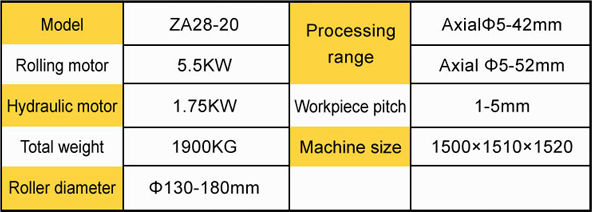
-
 Afrikaans
Afrikaans -
 Albanian
Albanian -
 Amharic
Amharic -
 Arabic
Arabic -
 Armenian
Armenian -
 Azerbaijani
Azerbaijani -
 Basque
Basque -
 Belarusian
Belarusian -
 Bengali
Bengali -
 Bosnian
Bosnian -
 Bulgarian
Bulgarian -
 Catalan
Catalan -
 Cebuano
Cebuano -
 Corsican
Corsican -
 Croatian
Croatian -
 Czech
Czech -
 Danish
Danish -
 Dutch
Dutch -
 English
English -
 Esperanto
Esperanto -
 Estonian
Estonian -
 Finnish
Finnish -
 French
French -
 Frisian
Frisian -
 Galician
Galician -
 Georgian
Georgian -
 German
German -
 Greek
Greek -
 Gujarati
Gujarati -
 Haitian Creole
Haitian Creole -
 hausa
hausa -
 hawaiian
hawaiian -
 Hebrew
Hebrew -
 Hindi
Hindi -
 Miao
Miao -
 Hungarian
Hungarian -
 Icelandic
Icelandic -
 igbo
igbo -
 Indonesian
Indonesian -
 irish
irish -
 Italian
Italian -
 Japanese
Japanese -
 Javanese
Javanese -
 Kannada
Kannada -
 kazakh
kazakh -
 Khmer
Khmer -
 Rwandese
Rwandese -
 Korean
Korean -
 Kurdish
Kurdish -
 Kyrgyz
Kyrgyz -
 Lao
Lao -
 Latin
Latin -
 Latvian
Latvian -
 Lithuanian
Lithuanian -
 Luxembourgish
Luxembourgish -
 Macedonian
Macedonian -
 Malgashi
Malgashi -
 Malay
Malay -
 Malayalam
Malayalam -
 Maltese
Maltese -
 Maori
Maori -
 Marathi
Marathi -
 Mongolian
Mongolian -
 Myanmar
Myanmar -
 Nepali
Nepali -
 Norwegian
Norwegian -
 Norwegian
Norwegian -
 Occitan
Occitan -
 Pashto
Pashto -
 Persian
Persian -
 Polish
Polish -
 Portuguese
Portuguese -
 Punjabi
Punjabi -
 Romanian
Romanian -
 Russian
Russian -
 Samoan
Samoan -
 Scottish Gaelic
Scottish Gaelic -
 Serbian
Serbian -
 Sesotho
Sesotho -
 Shona
Shona -
 Sindhi
Sindhi -
 Sinhala
Sinhala -
 Slovak
Slovak -
 Slovenian
Slovenian -
 Somali
Somali -
 Spanish
Spanish -
 Sundanese
Sundanese -
 Swahili
Swahili -
 Swedish
Swedish -
 Tagalog
Tagalog -
 Tajik
Tajik -
 Tamil
Tamil -
 Tatar
Tatar -
 Telugu
Telugu -
 Thai
Thai -
 Turkish
Turkish -
 Turkmen
Turkmen -
 Ukrainian
Ukrainian -
 Urdu
Urdu -
 Uighur
Uighur -
 Uzbek
Uzbek -
 Vietnamese
Vietnamese -
 Welsh
Welsh -
 Bantu
Bantu -
 Yiddish
Yiddish -
 Yoruba
Yoruba -
 Zulu
Zulu
Available Thread Rolling Machines for Sale Ideal for Your Manufacturing Needs
Thread Rolling Machines for Sale A Comprehensive Guide
Thread rolling machines play a crucial role in modern manufacturing, providing an efficient way to produce various types of threaded components. The rise of automation and increasing demand for precision engineering have led to a growing market for these machines. In this article, we will explore the advantages of thread rolling machines, their applications, and considerations for purchasing one for your business.
What are Thread Rolling Machines?
Thread rolling machines are specialized equipment used to form threads on a variety of materials, typically metal. The process involves deforming the material by squeezing it between two rotating dies, resulting in a strong and precise thread profile. Unlike traditional cutting methods, thread rolling does not remove material; instead, it displaces it, leading to enhanced strength and fatigue resistance. This is particularly beneficial for applications in the automotive, aerospace, and construction industries, where durability is paramount.
Advantages of Thread Rolling
1. Increased Strength and Durability Thread rolling enhances the mechanical properties of the material. The cold working process increases tensile strength, making rolled threads less prone to stripping or breaking compared to cut threads.
2. Cost-Effective Production By producing threads without cutting, thread rolling machines minimize material waste and reduce production time. This efficiency translates to lower costs for manufacturers, making it an attractive option for high-volume production runs.
3. Precision and Consistency Thread rolling machines offer exceptional precision, ensuring uniform thread profiles that meet stringent specifications. This consistency is crucial for components that require exact fits and alignments.
4. Versatile Applications These machines can produce a wide range of thread sizes and types, including standard threads, custom designs, and specialized profiles. This versatility makes thread rolling suitable for various industries, from medical devices to high-performance automotive parts.
Factors to Consider When Buying Thread Rolling Machines
thread rolling machines for sale

1. Type of Machine There are different types of thread rolling machines available, including flat die and planetary machines. The choice depends on your specific production needs, such as the material, thread size, and volume.
2. Machine Capacity Assess the machine's operational capacity to ensure it meets your production requirements. Consider factors such as the maximum material diameter, thread length, and production speed.
3. Automation Features Modern thread rolling machines often come with advanced automation features that enhance productivity. Look for options with programmable controls, automatic loading, and real-time monitoring systems.
4. Quality and Brand Reputation Invest in machines from reputable manufacturers known for their quality and customer support. Reading reviews and seeking recommendations can provide insight into the best options available.
5. After-Sales Support Choosing a supplier that offers excellent after-sales service can save your business time and money. Ensure that the manufacturer provides spare parts, maintenance services, and operational training.
Where to Find Thread Rolling Machines for Sale
The market for thread rolling machines is expanding, with various suppliers and manufacturers offering new and used machines. Online platforms, industrial equipment marketplaces, and trade shows are excellent resources for exploring options. Additionally, manufacturers often have sales representatives who can provide valuable information and assistance in selecting the right machine for your needs.
Conclusion
Investing in a thread rolling machine can significantly enhance your manufacturing capabilities, providing increased strength, precision, and efficiency. As you explore the options available for sale, consider your specific requirements and seek out reputable manufacturers to ensure a successful investment. With the right equipment, your business can meet the growing demand for high-quality threaded components in today’s competitive market.
